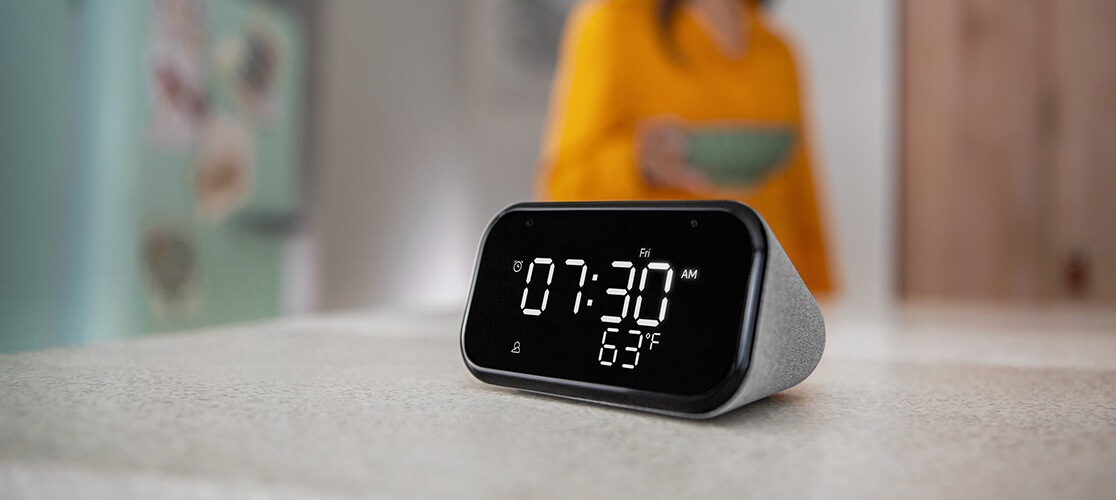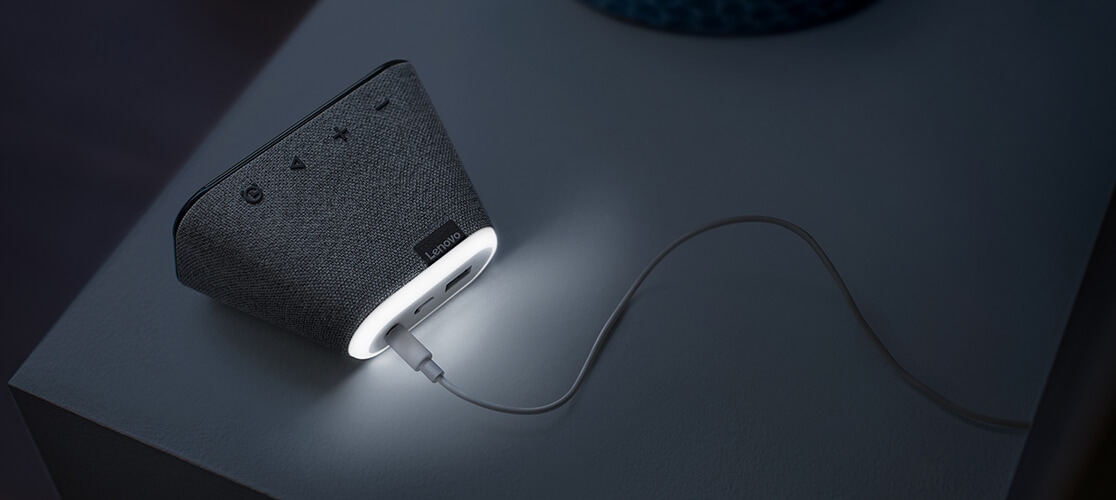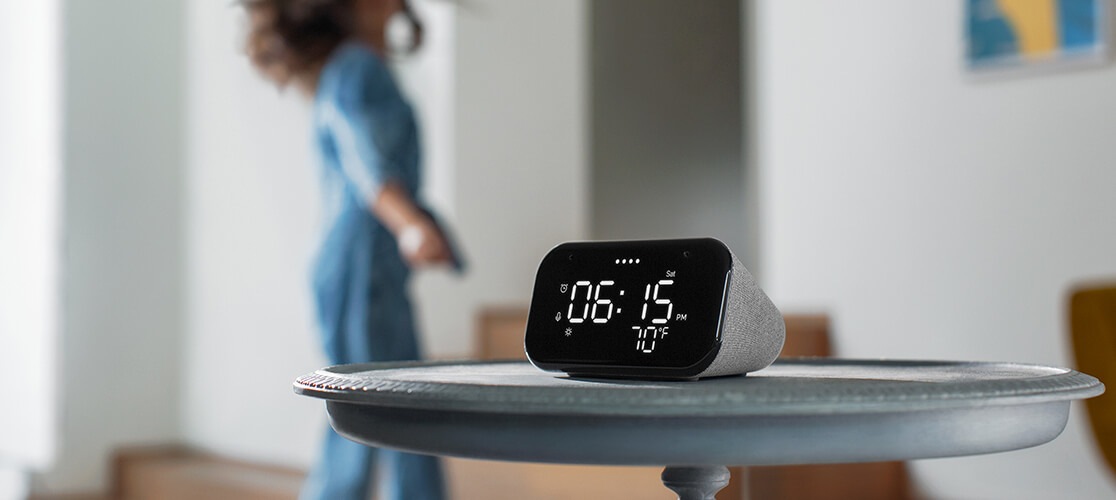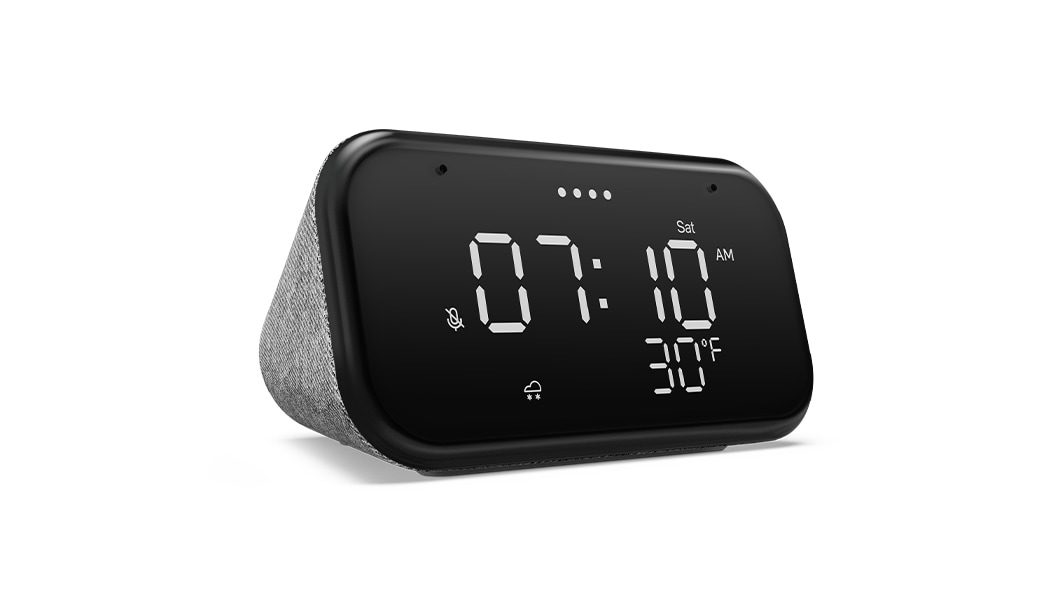Lenovo Smart Clock Essential -Smart Clock for Any Room
Lenovo Smart Clock Essential. A 4 inch stylish smart clock with Google Assistant. It has a big & bold display & controls all your smart home devices.
It’s about time
You can see the time on the Lenovo Smart Clock Essential’s easy-to-read LED—big, bright, and visible from any angle or across the room. Focused on something else? Just ask, “Hey Google, what time is it?” and the clock will answer you. Check the weather before heading out. Set timers for cooking, or to manage your kids’ screen times. Set reminders. Research facts. Add items to your shopping list. Just start with “Hey Google.”

Nighttime companion
A built-in nightlight lets you get up at night without stumbling around or waking up the whole family by turning on the ceiling lights. No more using the light from your phone at night as you head to the bathroom, study, or kitchen. The LED digits are just bright enough to make your surroundings clearly visible, yet dim enough to foster a healthy sleep environment.

Enjoy music, news briefings and podcasts…
Play your favorite audio streams; the smart clock’s quality speaker adds volume and bass to your music playlists, radio stations, audiobooks, podcasts, and more. All you need is your voice—just ask Google and listen. Or cast from a music app—just tap the Cast button on your go-to music app and start streaming your playlist straight from the clock. Plus, with the multi-room functionality, you can add your smart clock to a speaker group, so you can play media across multiple devices and rooms.

Control your smart home
Control over 40,000 compatible smart devices from 5,000 brands. Ask Google to set the temperature, dim the lights, and more. Just start with “Hey Google.” Plus, the handy USB port behind the Smart Clock lets you charge devices such as your smart watch or phone. You can also make a household-wide announcement by broadcasting to the other speakers or smart clocks throughout the house. Stream your favorite shows, movies, or music to your TV or speakers using only your voice—just ask Google.
Additional information
| Processor | Amlogic A113X (1.50GHz ) |
|---|---|
| Operating System | Linux |
| Display Type | 4" LED |
| Memory | 512 MB |
| Hard Drive | 512 MB Flash |
| Warranty | One year |
| Speaker | 1 x 1.5" 3W Speaker (Peak Power of 3W) |
| Bluetooth | Bluetooth® 5.0 |
| Wireless | 802.11AC (1 x 1) |






by Pavan
looks great and fits perfectly in our bedroom side table. Audio quality is great too. Its a very good alternative to Google Home | Nest Mini with some additional features like display and night light.
by Nirja
Great product. Works as described. Connects fine to my phone. Very satisfied.
by Shane
I’ve got an Insignia Google Speaker that’s a couple years old. It’s big and bulky compared to the Lenovo that I got your my kids’ rooms. I’m probably going to replace my clock speaker with the Lenovo because it is so much nicer.